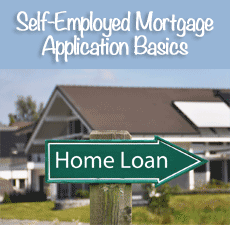 When applying for a mortgage when self-employed, a major factor is to declare as much income as you can. It is not uncommon for the self-employed to claim as many expenses as they can against their income to reduce their taxes. However, if you are seeking a mortgage, this practice may work against you.
When applying for a mortgage when self-employed, a major factor is to declare as much income as you can. It is not uncommon for the self-employed to claim as many expenses as they can against their income to reduce their taxes. However, if you are seeking a mortgage, this practice may work against you.
Applying for a Mortgage
Like anybody else, whether unemployed, working for an employer or self-employed, your mortgage application will be assessed on your regular income. If you are not earning enough to make the monthly payments, you will not be offered a mortgage. Many self-employed people who can afford mortgages are refused them because of the low declared income on their tax returns.
The taxation system permits claims for expenses to be made by self-employed people, and nobody is doing wrong by making them. However, if this artificially reduces your genuine income, then you cannot be surprised if you are refused the mortgage you need due to a lack of income.
It is not what you are actually earning that matters, but the income you are claiming after deductions. If you are self-employed and are applying for a mortgage, it is important that you maximize your income over the past year. You must come to a balance between the taxes you pay and the income you must declare in order to be offered a mortgage.
Stated Income Mortgage Loans
At one time, when applying for a mortgage, the self employed could simply state their income as the basis for a loan. Because some people had been abusing this facility, stated income mortgages have become almost impossible to secure at reasonable rates. They have not completely declined, but are generally available only from private lenders at high interest rates and high down payments. Down payments of 30% or more are often asked, the reason being that this provides a good equity in the event of any possible foreclosure.
Lenders and Tax Transcripts
If you are self-employed and seeking a mortgage loan, you must complete the IRS form 4506-T. This enables lenders to obtain details of your tax returns direct from the IRS. Your stated income, which will be your payments from clients and customers less claimed expenses, will then become the basis of the lending decision.
As stated above, your tax liability will reduce the greater your claimed expenses, but this will also result in a lower expectation of being offered a mortgage loan. It is a difficult situation to be in when applying for a mortgage.. It is for this reason that the self employed are recommended to seek the advice of a mortgage expert before making an application for a mortgage loan.
Many self-employed should begin the mortgage process a year before they make their application – so they can make sure they come to a good balance between gross income and net income. Before applying for a mortgage, you must be able to prove that you have the income to maintain your repayments.


About The Author: Karengustin
More posts by karengustin